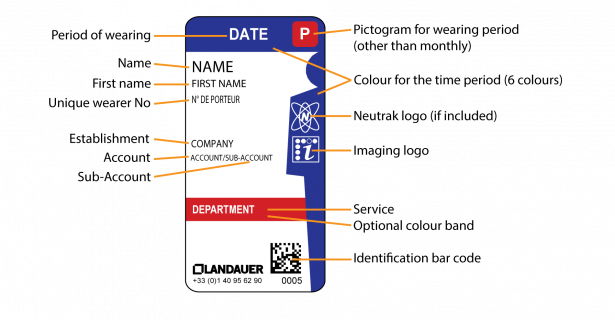
According to most national regulation, dosimetry monitoring is required for any worker potentially exposed to radiation. Thus, any worker entering a monitored area or a controlled area is subjected to dosimetry monitoring adapted to exposure mode. In terms of external exposure, dosimetry monitoring is generally performed by passive dosimetry.
In case the exposure limit values, the occupational doctor and the employer should be informed as soon as possible by the dosimetry service laboratory.
Since 2004, LANDAUER is approved by the French Nuclear Safety Authority (ASN) and holds an accreditation certificate for all external exposure measurement services. Furthermore, LANDAUER is the only laboratory in France certified for the following dosimetry services:
All employers using ionizing radiation sources or generators in their facilities must minimize radiation doses (ALARA principle) both for themselves and their employees. To measure such a risk, they must provide a personal dosimeter to any person entering a restricted zone.
It is a personal dosimeter. It ensures compliance with individual dose limitations. It also allows occupational doctors to take all necessary measures in the event of exceedances of regulatory requirements.

The personal dosimeter is worn:
Passive dosimeters are worn for a defined period (monthly or quarterly) depending on the nature and the dose likely to be received. Category B workers are usually monitored on a quaterly basis while Category A workers are monitored on a monthly basis. The Radiation Protection Expert is responsible for this categorization and should refer to the relevant national regulation or ICRP recommendations.
During non-wear times, personal dosimeters are kept on a Badge Board outside the control area with minimum possible background radiation.
A control dosimeter identified as such is included in every shipment and should under no circumstances be worn.